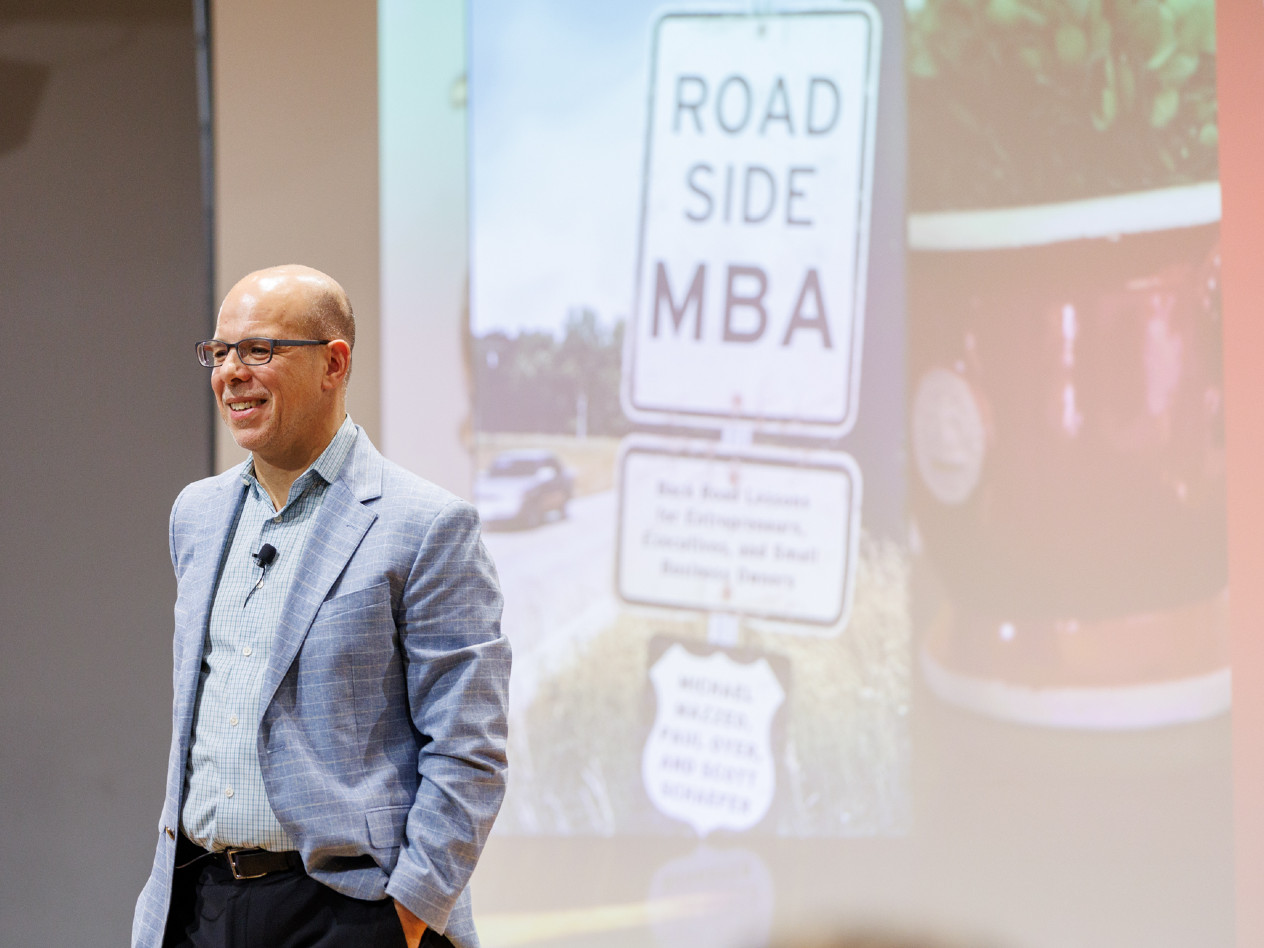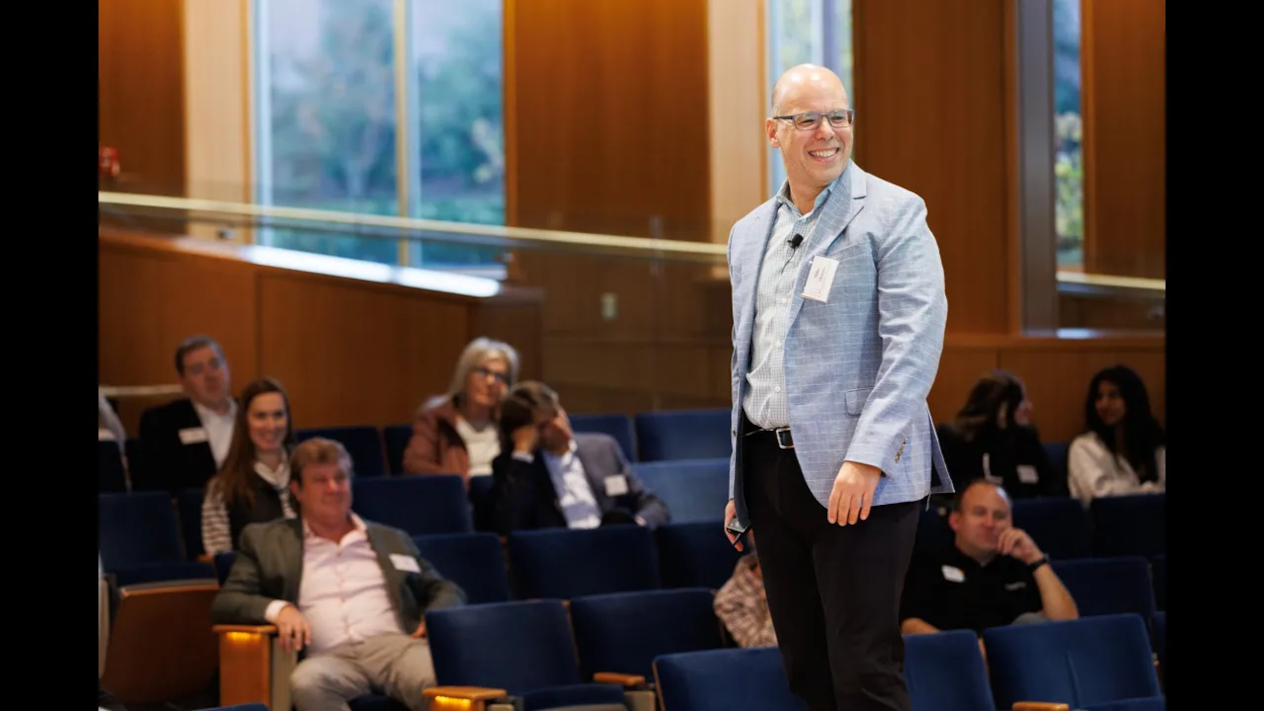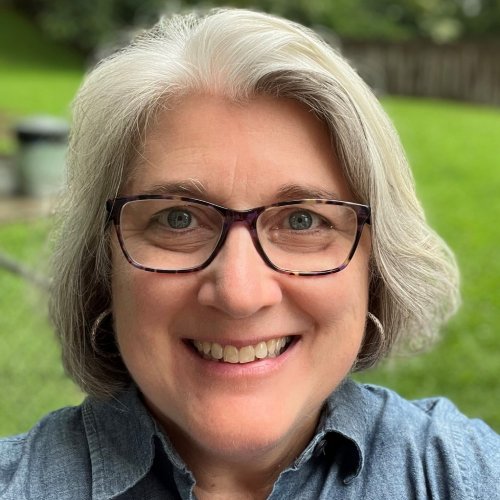Dean Mike Mazzeo sees a major role for Olin in helping smaller businesses thrive
- November 16, 2023
- By Suzanne Koziatek
- 2 minute read

As small businesses seek ways to innovate and grow, WashU Olin Dean Mike Mazzeo sees an opportunity to leverage Olin’s resources to help them.
Mazzeo, who is also a professor of economics at Olin, spoke to the business school’s Century Club on November 14 about the challenges that entrepreneurs face as their established businesses grow. His presentation, “From the Backroads to Brookings Drive,” drew on his research trips throughout the US and abroad, learning from the experiences of small-town business owners. That research resulted in “Roadside MBA,” a 2014 book he coauthored with fellow business school professors Paul Oyer of Stanford and Scott Schaefer of the University of Utah.
“Roadside MBA” celebrates the ways that smaller businesses have solved problems and differentiated themselves. In his presentation, Mazzeo highlighted one of them, Panhandle Converter Recycling in Dothan, Alabama, which extracted and recycled the precious metals contained in junked vehicles’ catalytic converters.
Panhandle’s owners faced a problem: It was impossible to tell from the converters’ exteriors how much of the valuable metals they contained. They developed a way to categorize them by shape and size to quickly estimate their contents. Panhandle combined this information with the constantly changing prices of the metals to make informed decisions about how much to pay for the junked converters, giving the company an edge over its competitors.
The owners, who did not have formal business education, were using sophisticated data analytics to grow their business, Mazzeo said.
That to me is so incredibly exciting, that innovation and sophistication and deep economics happen all over the place, and businesses are utilizing it for their profitability and growth.
—WashU Olin Dean Mike Mazzeo
However, he also pointed out the challenges that face these businesses as they attempt to scale their success. In Panhandle’s case, the company grew quickly and bought similar recyclers in other cities, taking on substantial debt. When the prices of the precious metals declined, Panhandle was unable to maintain high enough profits to service the debt and stay in business; the company closed in 2016.
Mazzeo said that many smaller businesses like Panhandle have great ideas or innovations but aren’t optimizing every aspect of their operations. “They’re leaving themselves vulnerable by not doing things like hedging the prices of commodities—things they would learn to do in a business school.”
He sees an opportunity for business schools to step into that strategic gap, putting faculty and students to work on the problems facing smaller companies.
Olin is well-positioned to lead in this effort, Mazzeo said. Its location in St. Louis puts the school in contact with more businesses of this size. And through the Koch Center for Family Enterprise, Olin already has the infrastructure in place to advise smaller, family-owned businesses.
He advised his audience to stay tuned for further details about Olin’s plans in this space.
“I’m really excited to potentially connect something that I’m so passionate about—small, middle-market companies—with my role here as dean and all the faculty and community here,” Mazzeo said.
From the Backroads to Brookings Drive
The search for real-world examples of successful product differentiation, pricing, brand management, team building, and a host of other topics.
Media inquiries
For assistance with media inquiries and to find faculty experts, please contact Washington University Marketing & Communications.
Monday–Friday, 8:30 to 5 p.m.
Sara Savat
Senior News Director, Business and Social Sciences

